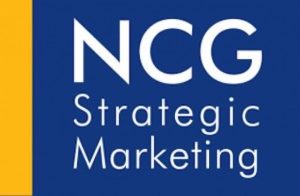By now, it’s fairly well understood that we are living through a period of great change and uncertainty. As Peter Winick proclaims in a recent post, uncertainty is now permanent. While I tend to be somewhat hesitant about calling anything permanent, it appears that for most people in the workforce today – and for almost anyone in the legal profession – uncertainty driven by growing competition will be an increasingly large part of our reality going forward. In fact, Winick notes that business guru Jim Collins – not someone prone to exaggerate – recently stated that “uncertainty is now the rule and not the exception.”
Fair enough, but what does this mean to you? What does it have to do with the challenges you’re facing in running a law firm? And what does any of this have to do with marketing?
First, this means you need to assume that change and uncertainty will be with us for a long time to come. Second, much of that change is going to involve increased competition, which will come from across town, from across the world and from technology – as well as from various combinations of these sources. Third, an environment of continually increasing competition should be sufficient incentive for every lawyer and law firm to focus on figuring out how they’re going to stand out and succeed.
***
It’s axiomatic that change – especially rapid change of the sort that’s all around us – can lead people astray, typically sending them in one of two very different directions: frantic, misguided activity on the one hand or complete paralysis and inaction on the other.
Obviously, neither of these directions is ideal. Frenzied but unplanned action in the face of uncertainty is a desperate attempt to make something, anything happen. This “all tactics, no strategy” approach is akin to flailing about in the hopes that something will work. In marketing initiatives, this leads, at best, to scattered, ad hoc efforts, wasted resources, and ultimately, frustration and burnout.
On the other hand, inaction in the face of uncertainty can be at least as bad an option. Commonly known as “paralysis by analysis,” this inactivity can be caused by the perception that there are too many difficult choices to make, or by the apparent impossibility of the task at hand. When a marketing initiative is being considered, inaction is sometimes rationalized through denial, i.e., “None of this stuff works anyway, so why should I waste my time on it?”
In this case, inaction is clearly the worse of the two options because it doesn’t provide the attorney with even the chance for positive results or useful feedback. And yet, I’ve seen that unplanned and ill-advised marketing efforts can have long-lasting negative effects, as I’ve spoken with attorneys and business owners who have forever sworn off one or more marketing channels because of a previous bad experience.
The best option, of course, is to strategically determine the best course for you and your business, a path through the marketing jungle that lies somewhere between the two knee-jerk reactions described above. The process of developing this marketing plan involves determining what combination of initiatives would make the most sense for you, your firm and your clients. How is this done? By asking many questions and carefully working through all the answers. Some of these questions resemble the following:
What’s your practice area? What’s your niche and how did you choose it? What makes you special as an attorney? What’s your unique selling proposition? What market forces are affecting – or may affect – the legal services you offer? Are these legal services in danger of becoming commoditized? How do you find new clients? What does your business development plan look like? Are you following it? Does it have both online and offline elements? How is each of them working out? Do you enjoy speaking? Do you enjoy writing? Do you enjoy meeting new people? Who’s your target market? How do you reach them? How successful are you at reaching them? How successful are you at closing business? If your prospective clients decide to work with another attorney, whom do they go with? Why? What percentage of your business is referral-based? How would you describe your client service? Do you conduct annual client reviews? If not, why not?
You get the idea. When marketing is conducted in a strategic manner, there are no shortcuts. But there are positive results.
***
As indicated above, we need to assume that change and uncertainty will be with us for a long time to come. For better or worse, that’s the new normal. But that’s not a reason to strike out randomly in various directions, without a strategy or a plan. Nor is it a reason to bury one’s head in the sand. Instead, it’s an opportunity to take steps to separate yourself from large numbers of your competitors. The sooner, the better.
Jim Collins says, “Greatness is not a function of circumstance. Greatness is largely a matter of conscious choice and discipline.”
In times of uncertainty, it’s especially important that you make the right choices.


